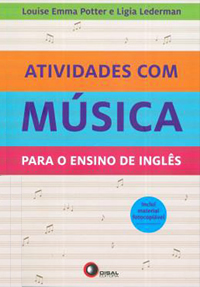By - Cecilia Cabrera Martirena*

“Let’s not pretend that things will change if we keep doing the same things. A crisis can be a real blessing to any person, to any nation. For all crises, bring progress. Creativity is born from anguish, just like the day is born form the dark night. It is in crisis that inventiveness is born, as well as discoveries made and big strategies. He who overcomes crisis, overcomes himself, without getting overcome…”

Here we are colleagues, doing our most to keep on teaching our learners in these difficult times of social distancing. Due to this COVID-19 pandemia, we have been forced to develop an emergency remote teaching plan. We have also been exposed to develop the skills to work through online platforms, make videos for our learners, deliver live lessons through platforms such as Zoom or Google Meets. We are doing our best, but sometimes we find it is not enough to cover the prescribed syllabus. Consequently, we might feel discouraged and at a loss. However, having in mind Einstein's words, this is the best time to become creative and decide to accept the challenge to innovate in our teaching.
Among the different teaching and learning approaches we may have at hand, the one I find most effective is Project-Based Learning (PBL). It is by far the approach that can be more successfully adapted to either face-to-face or remote lessons.
What makes the PBL approach ideal for our times?
PBL fosters the construction of knowledge through the development of higher-order thinking skills, visible learning techniques, and metacognitive processes. The development of language skills (reading, writing, speaking, listening) that enables the consolidation of Communicative Competence is promoted through the whole process of inquiry and creation. Inquiry-Based Projects are the backbone of the course. This means these projects intend to teach significant content. The objectives and goals for student learning are explicitly derived from the syllabus, content standards, and key concepts in each of the disciplines that participate in the project. "Projects are intended to create the need-to-know content and skills, and the opportunity for students to learn them in an authentic context." Miller (2014).
The main features of PBL that make it so suitable for these Emergency Remote Teaching (ERT) situation that we are having are:
PBL projects promote effective Communication
In this ERT situation, learners have the need and the possibility to communicate through different means. They are invited to produce many more written texts of different genres and well-planned oral texts.
Learner Autonomy
PBL projects are learner-driven investigations, where the teacher becomes a guide in the construction of knowledge. In the ERT context, learners need to become much more autonomous with the guidance, again, of the teacher. Autonomy needs to be scaffolded.
Authentic Learning
PBL projects invite learners to be involved in problem-solving, negotiation, and decision-making processes on real-world matters. This makes learning authentic and much more meaningful to the learner. In an ERT environment, the process of inquiry, questioning, reflection, creation, and collaboration may be enhanced.
Interdisciplinary work
PBL not only allows but also promotes the interaction and collaboration between different areas of knowledge. In PBL, as I mentioned in the previous point, we work with real-world matters, and therefore, in those contexts, the situations we go through are not divided into subject areas or disciplines. Our everyday life is a fantastic effect of the conjunction of facts, emotions, and beings that may be classified in different areas of knowledge. However, if we study the different areas of knowledge in isolation, we may not be able to grasp how deeply and magically intertwined things are.
Collaboration
PBL projects invite learners to work through different dynamics also in an ERT context. Whole class, teams, or one-on-one meetings can be done with different reliable cloud platforms for video and audio conferencing such as Zoom or Google Meets.
We may consider that there might be students who cannot work on the internet or do not have a computer. In these cases, PBL may also be a good helper in allowing learners to keep on learning. In the case your learners are in this situation, you could:
• Invite learners to do some research through interviews, process data.
• Ask them to read some articles, diagrams of similar research projects or topics, to inform their peers.
• Invite the learners to document the research process the group is going through.
• Design a model, prototype, or draft of the final product that provides the possible solution or solutions to the problem they decided to research into.
• Prepare the videos, written texts or podcasts, PowerPoint presentations the team needs for the final presentation.
• Provide Art-based project books for them to inspire their team members.
The possibility to teach and learn through PBL has proven to generate the interest of the learners in their learning process. They also become much more aware of their needs to reach the performance standards they are aiming at and become more skillful in describing their learning process.
From my experience as an English teacher in all performance levels and most age groups from 2-year-olds up, I can tell that Inquiry Based Learning through PBL is one of the most effective approaches, with or without COVID-19. It is high time we give it a chance.
RESOURCES
https://www.pblworks.org/blog/school-closures-using-pbl-remote-learning
https://www.pblworks.org/pbl-remote-learning
https://www.edutopia.org/blog/integrated-pbl-full-course-meal-andrew-miller
* Cecilia Cabrera is an experienced educational leader who has worked in the field for more than 25 years. She is a successful innovative leader who demonstrated to be an effective team builder and project manager. She has been accredited by Cambridge as Programme Leader for Educational Leadership Professional Development Qualifications. She has delivered workshops on leadership in Uruguay, Argentina, Brazil and UK.
She holds several postgraduate degrees and at the moment she is preparing her dissertation to earn an MA in Professional Development for Language Education, through NILE, of the University of Chichester.
LIVRO RECOMENDADO
